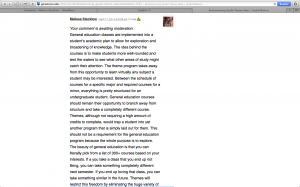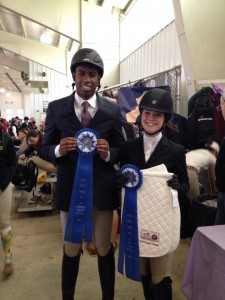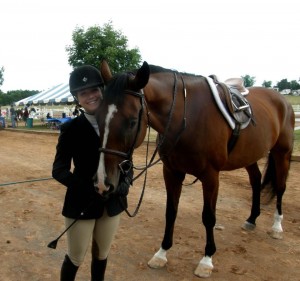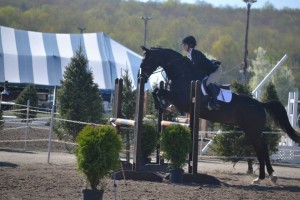Facebook Group
THON Facebook group
Melissa – family hour + final four, club sport involvement
Jane – accomplishments 2014, individual involvement/branch
Amanda – greek life involvement, canvasing/donation boxes/thonvelopes
Connor L – survival guide (Friday, Saturday, Sunday), canning
Connor – how it got started/ evolution, organizations and committees
Haley – canning, pep rally, line dance
Paper 4 Draft
Paper 4 Draft
Abstract
General Education courses are an incredibly important part of the undergraduate academic plan at Penn State University. The required 45 credits give students leeway to expand their knowledge outside of their desired major. They have the opportunity to branch out and become a more well rounded, diverse individual. The three aspects being considered during this general education reform are exploration, integration (themes), and skills. Exploration credits are an excellent way for students to embrace academic freedom and discover interests they may not have otherwise come across. Skills courses are also crucial to the program because of their ability to create a strong set of knowledge that can be applied to concrete professional situations. Themes and integration, while a great idea for some, should become an optional route for students to follow if they desire a more structured general education curriculum. These courses are imperative to establishing a strong academic career; therefore they should be reformed to be as beneficial as possible for students.
Importance of General Education
General Education credits are implemented into academic plans to allow undergraduate students the opportunity to become well-rounded and make the most of their studies. They are allotted a certain number of credits out of their major-related courses to expand their knowledge and make them more diverse students. While the courses within a specific area of focus are very important, general education courses can serve just as much purpose. They can enlighten students and open doors of interest that they never would have found otherwise. To some, these courses appear to be a waste of time or an inconvenience. Despite this opinion, these courses are crucial for the expansion of studies and establishing a strong knowledge base. General education courses can help students later on when it comes to finding a job and becoming a strong candidate for it. A student with a wide variety of knowledge is going to appear to be well-rounded and dedicated to their studies. A perfect example of this is Dr. Jessica O’Hara from Penn State University who had a strict focus in English, yet decided to take a marketing class. This class played a big role in why she was hired for one of her job interests. Her small background in marketing made her that much more qualified for the job. General education credits are so imperative to the undergraduate program, which is why they need to be approached in the best way possible.
Exploration Credits
Exploration serves as the sole purpose as to why these courses were implemented into the curriculum. There are hundreds of classes that students can take to obtain the required 45 general education credits at Penn State. This leaves room for them to take virtually any class they have an interest in. Ranging from classes focusing on African American studies all the way to music and theater. The variety is untouchable and gives the students so much freedom to do whatever they want. It is beneficial to students to have credits for exploration because they can discover their interests outside of their major. If they don’t enjoy a class they take, they have the opportunity to take a completely different one later on. Students have the chance to expand their horizons to courses that don’t have immediate instrumental value1.
Skills Courses
General education courses should be teaching students and giving them the education they need to thrive in the current economy. It is crucial for students to learn writing, reading, and speaking skills in order to be successful in professional situations. It is also absolutely critical to develop at least background knowledge about communicating through various digital and traditional methods. Lastly, they need to gain an understanding and learn how to process colossal amounts of data and information and apply that knowledge to advanced situations2. Currently, students at Penn State are required to take English 015, CAS 100, and English 202 for their area of discipline to fulfill the need for obtaining writing, speaking, and reading skills. These courses work to push students and teach them how to present themselves well and professionally. The potential reform for these courses is to merge English 015 and CAS 100 together to create one year long course. This idea would be beneficial to students because they could develop writing, comprehension, and speaking skills all together. With the grouping of these classes, all of the necessary English components can be tied together, creating a stronger and more developed skills base. Aside from English credits, other skills courses should remain a part of the general education program. They show to be just as necessary and useful for real world application regardless of what major a student pursued. As Long stated in his interview, the priority of the general education courses is to provide students with a plethora of knowledge that can be applied and aid in living a fulfilling life1.
Optional Themes
Themes and integration are a strong idea for the general education reform. Christopher Long expressed his concern that the general education curriculum is not really much of a curriculum at all. The idea is to establish more structure and generate a path for students so that taking these credits would have a curriculum feel1. Grouping together different types of general education courses, such as humanities and social and behavioral sciences, with the same overall concept would be a great way to create a solid focus while also exploring various types of studies. For example, a student could pick a theme revolving around love and sex. Within that theme they could take Philosophy 014(GH): Philosophy of Love and Sex, Biology 117 (GN): Biology of Sex, and Psychology 422: Human Sexuality3. This creates a variety of studies while still retaining an overall theme in common. That being said, it may also take away from the freedom of general education that some students really appreciate. The opinion of this idea would vary from student to student, which is why this integration reform should be optional. From an English 015 in class deliberation, many students agreed that that themes should be implemented because of the focus they’d create for general education. However, a majority also decided that they would have no desire to choose a theme from a list and take the courses within that program. They enjoy the flexibility Penn State offers and feel they would benefit less from a structured general education program5. With themes and integration as an optional program, students can then make their own decision based on what they feel will benefit them most in the long run.
Conclusion
The general education reform needs to be approached in such a way that will most benefit students. Allowing a significant amount of the 45-credit program to remain open for exploration purposes will allow the students to expand their horizons and obtain a wide range of knowledge. Exploration exposes students to new interests that they may not have found otherwise. Branching out into studies outside of a given major will help develop diversity in their knowledge, which can easily benefit them in the long run. The other very important part of general education courses is establishing a strong skills set. Learning and understanding different skills, such as writing, reading, speaking, processing data, and communication, is so imperative to the goal of empowering students to live a fulfilling life. Skills courses will benefit students in professional situations and prepare them for any situation they may face. The last focus, themes and integration, should become an option for students. This should not be mandatory because every student enjoys learning differently. If they desire the freedom of general education courses, it is available to them. However, if they’re looking for a more structured program, they will have the choice to pick a themed path to follow. Overall, general education courses are meant to create strong students that are well exposed to various studies and prepared for professional situations.
1http://www.cplong.org/2014/04/general-education-reform-at-penn-state/
“General Education Reform at Penn State.” GenEd Matters, 15 Apr. 2014. Web. 20 Apr. 2014. <http://www.cplong.org/2014/04/general-education-reform-at-penn-state/>.
http://gened.psu.edu/2014/02/15/penn-state-students-shed-light-on-gened/
http://www.cplong.org/2014/01/deliberating-gened-reform-at-penn-state/
http://onwardstate.com/2014/03/26/gen-ed-reform-at-penn-state-in-progress/
In class deliberation
Survey
Just Keep Going
This past weekend, I traveled with my equestrian team to Centenary College in New Jersey to compete in Zone Finals. College riding is split into regions and zones. This year, Penn State won in our region which automatically qualified us as a team for Zones. Five teams were competing this weekend, as well as other individual qualifiers. When your team qualifies, your coaches then pick one person per division to represent the team. These people will then show against the people chosen from the winning schools from the other regions. The effort the qualify for Nationals becomes collective and every person showing for the team matters. In order to move forward from Zones, your team has to place 1st or 2nd in the Zone championships. Now that you have this background, I’ll explain where I’m going with all of this!
I was chosen this year to ride for team novice fences, which means that I would compete against 4 other riders to try to gain points for my team. I was so nervous because this is my president’s last year on the team and he really wanted to make it to Nationals. I went in the ring and rode my best for my team. I ended up winning my class, which was actually our first win of the day for the team. My win put us ahead for a while and created a streak for us. We were doing really well and were tied for second with Delaware Valley College, sitting only one point because Centenary in the first place position. It all came down to the last team class. Our rider ended up placing third in this class, getting us 4 points. Unfortunately, Del Val and Centenary’s riders placed 1st and 2nd. As a team, we ended up in 3rd place by one point. I’m sure you can understand why we were a little upset.
What I realized this weekend though is that you can’t let things like this stop you. One point kept us away from being able to compete at Nationals. We were just as good as the other teams, maybe even better because of all the struggle we went through this winter. We went through a whole change of barn which meant new coaches and a new team dynamic. Even though this change was for the better, we still were out of practice for about a month and a half. For us to be this competitive at Zones with only a couple weeks of riding was impressive in my eyes. We all rode great, but with IHSA it just comes down to the luck of the draw. Sometimes you get a great ride, and other times you get one that is going to challenge you.
My president, Brendan, was obviously upset by this because it marked the end of his college riding career. He wanted us to get to Nationals so badly, but he kept a good attitude. He praised our team and knew we did all we could. He told us we’d win it next year and continuously tried to build our confidence. In life and in riding, you can’t let the downfalls stop you. Our team didn’t quit through everything we went through, which made us one of the top three teams in our Zone. We will only learn from this and work harder next year to earn our spot at Nationals.
Use your failures as motivation for success.
Give It Your All
Riding is a sport of dedication, just like anything else. In order to be successful, you have to put in unbelievable amounts of effort and time. I had always made riding my number one priority, but in my last two years or so it became my whole life. I spent hours and hours at the barn working with the horses and riding multiple a day. It was exhausting but I didn’t complain about it once. I knew in the long run that putting in this amount of effort would only benefit me and my riding. I was happy putting everything aside for horses.
I mentioned Splendid in a couple of my blogs already. The reason I got the opportunity to ride this ridiculously perfect and athletic animal was because I worked for it. The effort I put into riding and the dedication I had to bettering myself was noticed. I gave the sport everything I had, whether it was riding four or five horses a day or even just going to the barn to groom and graze the horses. It was all noticed. So when it came to my best friend leaving for school in Alabama, her and her mom, who is also my trainer, decided to make Splendid my complete responsibility. They trusted me with the horse and gave me an opportunity that I had dreamed of for years. I got to work with him and reach levels in my riding I never thought I could. Not to mention, this horse also became my best friend (I know, it sounds funny but its true). I had so much fun with this animal and really committed to being the best athlete I could be.
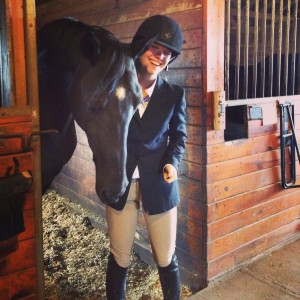 The effort I put in with Splendid was also recognized. I was at the barn every day, sometimes even until 10pm on a school night. I would go to school, babysit, and still make time for the horse. They gave me the opportunity and I ran with it. I treated him like my own and made it clear that I wanted to give this everything I had. The more effort I put in, the more my trainer let me work with the horse in lessons and horse shows. The first time I got to show Splendid was the biggest dream come true. Then I got to keep showing him, and eventually take him to the Garden State Horse Show which was really just incredible.
The effort I put in with Splendid was also recognized. I was at the barn every day, sometimes even until 10pm on a school night. I would go to school, babysit, and still make time for the horse. They gave me the opportunity and I ran with it. I treated him like my own and made it clear that I wanted to give this everything I had. The more effort I put in, the more my trainer let me work with the horse in lessons and horse shows. The first time I got to show Splendid was the biggest dream come true. Then I got to keep showing him, and eventually take him to the Garden State Horse Show which was really just incredible. 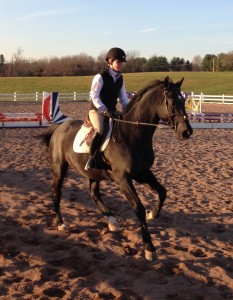
 The whole point in all of this is one thing: always give it your all. The harder you work at something, the more successful you will become. This seems like a simple concept because it really is. You get what you give and sometimes you’ll get lucky like I did and get handed an opportunity that leaves you speechless. Hard work is always recognized, even if you don’t think so. Someone is always taking a mental note about how dedicated you are or how much effort you’re putting in. There isn’t much of a point of doing something if you don’t commit to it. Hard work is the reason people succeed. Nothing just gets handed to you and the best opportunities take time and patience. Just keep working at whatever it is and something good will eventually come out of it. I know that for me, the experience I got to have with Splendid was the most rewarding and just an unforgettable opportunity.
The whole point in all of this is one thing: always give it your all. The harder you work at something, the more successful you will become. This seems like a simple concept because it really is. You get what you give and sometimes you’ll get lucky like I did and get handed an opportunity that leaves you speechless. Hard work is always recognized, even if you don’t think so. Someone is always taking a mental note about how dedicated you are or how much effort you’re putting in. There isn’t much of a point of doing something if you don’t commit to it. Hard work is the reason people succeed. Nothing just gets handed to you and the best opportunities take time and patience. Just keep working at whatever it is and something good will eventually come out of it. I know that for me, the experience I got to have with Splendid was the most rewarding and just an unforgettable opportunity.
Recommendation Report
In my personal opinion, general education courses should be geared toward exploration and expanding an individual’s knowledge. These courses were made so broadly with the idea that a student can take something they’re really interested in, like Photo 100 or Linguistics. These classes are usually available despite what major they are focused in, which is why they are such an important part of the undergraduate education. The freedom of these general education courses allows for a biomedical engineer to take a course like Soc 019 simply because they’re interested in it. They add a variety to a student’s knowledge because they offer the opportunity to explore different areas of study. Originally, I thought the 30 credit theme idea would be interesting. It seemed like an interesting way to focus and group the general education courses. However, I believe that the true purpose of the courses is to explore without being tied down into one area of study.
Throughout your education, you are told to pick a major and occasionally a minor. These both require a certain path of study and courses that are specifically designed to expand knowledge in that area. Within a major and minor, there is a specific curriculum to follow. This means that an undergraduate’s classes are pretty much laid out for them, taking away the freedom of expanding your knowledge outside of that area. This is why general education courses are so crucial to the curriculum. As of now, there are very minimal guidelines to how to take these courses as long as you obtain the required credit amounts. You are given a list of hundreds of courses that range from African American studies to Theater. Basically, whatever you are interested, you have the option to take. This, in my opinion, is the beauty of general education courses. Exploration is the main purpose of making a student take a certain amount of credits. The thought here is that maybe they’ll take a course they’re interested in and then decide to declare a minor. Themes are very similar to a minor, however they’re smaller. They may be a good idea for some students, which is why they should be an option. I don’t believe that themes should be a requirement, nor should skills courses. I think they should be options to follow if a student has the desire to focus their general courses in this manner. Otherwise, exploration should remain at the core of general education courses.
Option 3 Deliberation
Option 3 Skills
Melissa and Amanda
- Learning skills more important than developing a theme?
- Exploration is more important, should be more emphasis on skills. Need to be able to take these classes earlier-like English 202 or CAS 100.
- Skills important for your job should be covered by your major. Gen Eds should cover general skills that everyone should have. Major should teach you most of your skills that you need to focus on independently
- Everyone should know how to write. Know the basics (from English 15), learn a lot of different way to write which is a good way to start and then writing should be further developed within your specific major.
- Professional email writing? Should this be a focus? Want to look professional- should be a skill covered in a class like English 15
- Mash CAS 100 and English 15 into one class – good idea
- What else is important besides writing and speaking? What other skills are important?
- General math
- How to work with different programs (Example – Excel) – technology class for each major just to get familiarized with these programs that you may need to use later on – Powerpoint, prezi, etc
- Are people already competent in how to use excel? Some say yes, some would say no. Generally know how to use it but they don’t know how much the program can actually do
- Art majors – something
- Does this take away freedom of Gen Eds?
- Yes, but only taking it away because its important
- Already kind of forced to take these classes – wouldn’t change much
- More useful and interested because the classes will actually help them- learn skills they will actually have to use rather than taking something like Astro where you probably don’t care as much about the material.
- “Recitation” could be held by grad students and TA’s? For extra help- or have these classes in very small numbers of students (~30) so that you can get individual attention and attendance would be more likely
- Badges??
- Not really sure how we feel about it
- Just a way to recognize student achievement
- Can’t be overly subjective – what quantifies a superior essay?
- Going to vary on every class
- Comparing yourself to the entire student body which is very difficult especially because every professor teaches differently and grades more or less harshly
- Participate in workshops as part of a class requirement – resume, interviews, etc
Personal Stake
-Personal experiences with this issue?
I have a real problem with general education courses right now. Not so much the chemistry or physics or math courses, but more the courses I have no interest in. Currently, I’m taking Linguistics as a general social and behavioral science class. Honestly, I take nothing from it. I attend class and write the papers and follow the notes, but I have no interest in really grasping the material. I’d rather be focusing on the courses geared toward my major (veterinary and biomedical science). For next semester, I have to pick more general art or humanities courses that I already know will just take up time I could’ve spent studying for something else.
-What concerns you the most about this issue?
My concern with this issue is that it really effects some people’s GPA. They spend their time studying for these gen ed courses that they have no interest in which makes them less successful in the classes that actually matter to them. Or they just don’t spend any time on the gen ed course and that also drops their GPA.
Paper 3 Draft
Paper Option 3 Idea 3: http://thecolbertreport.cc.com/videos/ysbw7d/sports-illustrated-barbie
Stephen Colbert report about women and Sports Illustrated magazine. Barbie put on cover. Introduction Sports Illustrated is popularly known for their swimsuit addition, featuring attractive females with a relatively small amount of clothing. Degrading? The answer from the majority will most likely be yes. This magazine cover attempts to grasp the man’s idea of the perfect women, potentially belittling others than don’t look quite like her. They rarely have a flaw in their body, which makes men attracted to them and women insecure over them. There is a Stephen Colbert report about women and the Sports Illustrated magazine, specifically the addition with a Barbie on the cover. The report is absolutely filled with satire- utilizing primary strategies, commonplaces, and persuasive aims to create a strong piece. There are many strategies used in Colbert’s report about women and the magazine to generate the idea that the magazine can be seen as degrading and that it represents an unrealistic image of a woman.
Sports Illustrated releases an annual swimsuit edition featuring an attractive woman with very little covering her body. The magazine is dedicated to sexualizing women and presenting them as more of an object than anything else. The interesting aspect behind this magazine though is how they created a 50th addition featuring a Barbie on the cover with the slogan, “#unapologetic.” Stephen Colbert spoke about this specific edition in a report during Women’s History Month, just to make a stronger point. He begins talking about the magazine and how it fully encompasses “how far women have come.” This immediately introduces his satirical stance on the swimsuit edition as a whole. To say women have come so far because they’re featured in a magazine dedicated to a male audience while wearing a virtually nothing is completely sarcastic. It is as almost to say that women are being more degraded and objectified more than ever.
To add on to the idea of the progress of women, Colbert makes a comment that Sports Illustrated’s annual swimsuit addition has “long been a bastion of civil rights from the occasional black model to the one that was under 5’10”.” This humorous approach is what Jay Heinrich, author of Thank You For Arguing, would call wit, or situational humor (Heinrich 100). Colbert uses this witty comment to make it seem like a women under 5’10” is some sort of minority in the eyes of the swimsuit addition. By breaking these barriers and putting “minority” women on the cover, he mocks that women are really making progress in terms of civil rights and respect.
The next “milestone” the magazine was said to make was featuring Barbie in the 50th anniversary edition. This caused a lot of controversy due to the confusion of why a little girl’s toy would be put into a magazine that sexualizes women. A news reporter in the clip states that having Barbie on the cover “only serves to further sexualization of girls and objectification of women.” Colbert replies that this is not the objectification of women, but instead the “womification of object.” This tactic can be seen as a type of chiasmus, a change in word order that creates a crisscross sentence, as well as the invention of new words (Heinrich 218). The Barbie is dressed in a bathing suit, just like a regular featured model would be, which is why Colbert tries to twist the order of the statement. He jokes that women are not being objectified because of the doll, but that the doll is being “womified” because of how the audience will now see her after the edition.
He proceeds by making a witty comment about how Barbie doesn’t need him to defend her because she can do it herself with her glued together plastic fingers. The humor is taken even further when he pulls out a fake magazine article with a quote from Barbie stating, “It’s time to stop boxing in potential. Be free to launch a career in a swimsuit, lead a company while gorgeous, or wear pink to an interview at MIT. The reality of today is that girls can go anywhere and be anything.” This whole idea becomes a mockery due to the use of examples of swimsuit models having the opportunity to be anything they want to be solely because of the sets they’re working on. He says that Sports Illustrated Swimsuit Edition is all about “achieving women’s dreams.” This is humorous because he then makes a mockery out of this by showing women modeling as desert explorers and astronauts. Heinrich would refer to this progression as a cliché twist, or more specifically a surprise ending, meaning that a cliché was started as normal but then ended differently (Heinrich 378). This is not the perfect example of how this rhetorical tactic works however it follows the same general idea with the use of a stereotype. He grouped all women into the idea that they can be anything they want to be, as long as they’re exposing their bodies or looking pretty. This was a surprise ending, but it made a humorous point that supported his claim about objectifying and degrading women.
The Colbert Report touches on different controversial subjects in every episode while keeping the satirical aspect in tact for each. Stephen Colbert attacks the subject of the Sports Illustrated Swimsuit Edition in this specific segment with special focus on the featuring of Barbie. Through rhetorical strategies, commonplaces, and fallacies, Colbert captures ideas of the objectification of women and how the magazine interacts with this issue.
Always a Project, Not a Problem
I’ve previously talked about persistence and now I’m going to bring it up yet again. It’s just that important in riding. This one was a common lesson that I heard while riding my own horse, Chuck. Learning how to ride can be difficult, especially if your horse really doesn’t help you out. My horse was one of those. He’s the cutest animal alive, but he can definitely be a handful on the days he doesn’t feel like cooperating. Always a project, never a problem came up a lot during my lessons with him. Basically this just means you have to keep working. If you fight the horse, you probably won’t win (they’re a lot bigger than you). You have to pick your battles in riding and more often than not, you can get around the fight. Making a problem into a project allows you time to gradually learn and figure out how to fix the problem. You can stay more focused on the task and stay calm while trying to complete it. With my horse, he’d spin away from the jumps, and usually I’d fall off. It was frustrating and I was definitely getting angry about it. Then I heard, “always a project, never a problem, get back on.” So I’d keep working at it until finally I figured out how to 1) stay on and 2) keep him from stopping out at the jumps. It was a long process, but it was a project. I never picked a giant fight with him because if I did, I probably would’ve lost.
This saying brought me a long way in riding because it made me realize the difference between working at something and just fighting it. I use this idea in my life every single day. When I’m struggling with school, I just tell myself to keep working at it. Don’t get frustrated and don’t get overwhelmed trying to fight what you don’t understand. I tell myself, just make it a project, and then I can work much calmer and really be more effective. Some things can’t get resolved in a day, which makes them become a project in my mind. Projects are much easier to resolve than a problem. You can’t force a problem to be resolved especially because it usually makes you angry or anxious. Projects give you time and allow you to learn and work with what you have while remaining more relaxed.
The picture below is of me jumping my horse Chuck in the 3′ equitation. This is a relatively high level class and it was definitely a step up for me with my horse. I worked hard and focused on the projects he gave me and ended up getting to this point. If I remember correctly, this was one of my first few shows at the 3′ with my own horse. Because I made all of his little flaws into a project instead of fighting them, I was able to be successful and ride my horse that much better in the long run. To this day, I still hear, “Always a project, never a problem,” even if it comes from myself in every day life.

